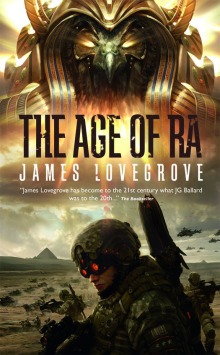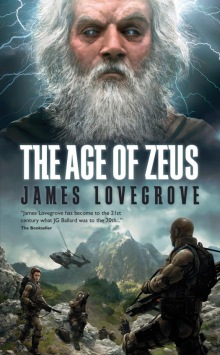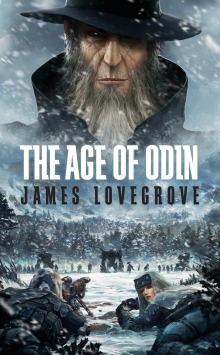The Hope (28 page)

As Paolo finished this last page, he no longer wanted to hold the notebook. Death, which he had decided was a disease, infected that notebook on every smeary, scrawled page. Paolo put it down, went to the basin and washed his hands for five minutes. Then he splashed cold water over his face and rested his hands on the edge of the basin and let the water drip off his face. His eyes were closed.
Lonely the Rat
was the story of a madman. There were plenty of madmen on board and no doubt plenty of alternative Lonely the Rats. The thin man had been deranged, no more, no less. He was not a dream born to life. That was plain fantasy. He had no purpose other than to kill as many people as he liked. Paolo opened his eyes and took a look back at the notebook’s red cover and childish handwriting. With that one look, he knew he was lying to himself.
Lonely the Rat
was, as its subtitle had promised, a true story. Paolo knew that without knowing why. He sensed it. He had lived his whole life on board this floating shitheap. His ship-born instincts could not let him kid himself. Now that the thin man, Lonely, was dead… Now that Paolo had killed this thin man, Lonely…
No one else knew. Paolo Bellini was the only person on board who knew.
Wasn’t that funny?
There was no other side. The ocean really was unending. It didn’t just seem that way, it really fucking was! The
Hope
was chasing its tail like a mad dog driven crazy by fleas.
“Bullshit,” said Paolo out loud and the word was false from his tongue.
Paolo hung on to the railings. There were a handful of other people here, all minding their own business as he was minding his. The whole
Hope
was spread out behind him. Seagulls hovered around the ship in a speckled cloud. The wind came thickly salted off the sea and into his face, tugging at his hair the way a child pulls its parent’s hair for attention, and the seagulls played games with the wind but cried as they played, their falling-down notes of dissent answered by distant cousins higher up, further away, grey specks of sound lost in a white-noise sky. Some of the gulls strutted close by Paolo and made loud interjections as the passengers inhaled the torpid air and chose to feel invigorated by it.
This was a popular spot, the pinnacle of the outer rim, the point of the
Hope
. It was a view of a wasteland expanse of ocean but you thought you were looking out the way the
Hope
was heading. One day you might even be lucky enough to glimpse land. There was a small sign commemorating the obvious:
Welcome to The Bows
Paolo leaned over the railings. An old couple cast a nervous glance in his direction, worried he was about to jump off although not prepared to do anything if he did. He didn’t.
Instead he looked down a cliff-face of iron, pitted and bolted and riveted and streaked with rust. Near the level of the sea the rust became dominant, surrounding the ship with an orange skirt. There, at the bottom, the ship’s sides met in a blunt apex. Paolo blinked out of his eyes the tears that the wind had put there. He focused hard.
Was it just visible? Was one bow-wave bigger than the other? Was it true?
Paolo leaned back. Out from under his shirt he took a package, something small wrapped in an old T-shirt (one like Eddy’s, with the same slogan). He checked
Lonely the Rat
was still safely inside, unwilling to touch the cover ever again.
He hesitated. Perhaps he should tell somebody. Perhaps he should inform the Captain. But he knew the Captain would never believe him. He’d say Paolo wrote the thing himself, just a kid trying to make a name for himself, playing a big joke on the passengers, don’t be ridiculous, go home, son.
Paolo tried hard not to smile to himself.
Then, with the seagulls wheeling and wailing overhead, he drew back his arm to hurl the package overboard.
Afterword
The Hope
was my first novel, written in the autumn of 1988 at breakneck speed (some six weeks from start to finish, a feat I could never hope to repeat nowadays). It failed to change the world, of course, but at least it was published.
When Orion Books offered to reissue it after it had been out of print in the UK for almost a decade, I was glad for two reasons. First, because all the people who’d told me they’d like to read
The Hope
but couldn’t find a copy could now do both, and second, because a reissue would provide me with an opportunity to give the original text a bit of a refit, patch over some of the more corroded sections, touch up the paintwork here and there, scrape off a few barnacles, generally spruce the thing up and get it all shipshape for its relaunch.
In the event, and probably more through laziness on my part than anything, I have made very few revisions. Where I have made changes, it has been for the sake of textual clarity and to correct solecisms. Other than that, I have let the novel stand as it is, with all its rawnesses and crudenesses (as I perceive them) intact.
I’d like to thank Mechelle Dudley for her sterling efforts on the copytyping front, and Mark Morris, who championed the book when it first came out.
– J.M.H.L.
Lewes, East Sussex
February 2000
ALSO BY JAMES LOVEGROVE
Novels
Redlaw
The Hope
Escardy Gap
(co-written with Peter Crowther)
Days
The Foreigners
Untied Kingdom
Worldstorm
Provender Gleed
The
Pantheon
Series
The Age Of Ra • The Age Of Zeus • The Age Of Odin
Novellas
How The Other Half Lives
Gig
Dead Brigade
Collections of Short Fiction
Imagined Slights
Diversifications
For Younger Readers
The Web: Computopia
Wings
The House of Lazarus
Ant God
Cold Keep
Kill Swap
Free Runner
The
5 Lords Of Pain
series
The Lord Of The Mountain • The Lord Of The Void
The Lord Of Tears • The Lord Of The Typhoon
The Lord Of Fire
Writing as Jay Amory
The
Clouded World
series
The Fledging Of Az Gabrielson
Pirates Of The Relentless Desert
Darkening For A Fall • Empire Of Chaos
Also from Solaris Books,
The Age of Ra
by James Lovegrove...

The Ancient Egyptian gods have defeated all the other pantheons and divided the Earth into warring factions. Lt. David Westwynter, a British soldier, stumbles into Freegypt, the only place to have remained independent of the gods, and encounters the followers of a humanist freedom-fighter known as the Lightbringer. As the world heads towards an apocalyptic battle, there is far more to this leader than it seems...
"The kind of complex, action-oriented SF Dan Brown would write if Dan Brown could write."
The Guardian
on
The Age of Zeus

www.solarisbooks.com
Also from Solaris Books,
The Age of Zeus
by James Lovegrove...

The Olympians appeared a decade ago, living incarnations of the Ancient Greek gods, offering order and stability at the cost of placing humanity under the jackboot of divine oppression. Until former London police officer Sam Akehurst receives an invitation to join the Titans, the small band of battlesuited high-tech guerillas squaring off against the Olympians and their mythological monsters in a war they cannot all survive...
"The kind of complex, action-oriented SF Dan Brown would write if Dan Brown could write."
The Guardian
on
The Age of Zeus

www.solarisbooks.com
Also from Solaris Books,
The Age of Odin
by James Lovegrove...

Gideon Coxall was a good soldier but bad at everything else, until a roadside explosive device leaves him with one deaf ear and a British Army half-pension. So when he hears about the Valhalla Project, it’s like a dream come true. They’re recruiting former service personnel for excellent pay, no questions asked, to take part in unspecified combat operations.
The last thing Gid expects is to find himself fighting alongside ancient Viking gods. The world is in the grip of one of the worst winters it has ever known, and Ragnarök - the fabled final conflict of the Sagas - is looming.
“The kind of complex, action-oriented SF Dan Brown would write if Dan Brown could write.”
The Guardian
on
The Age of Zeus

